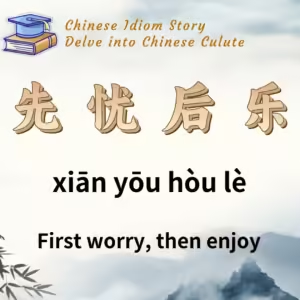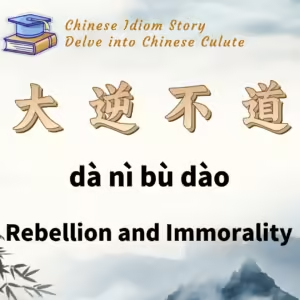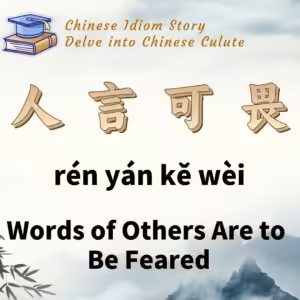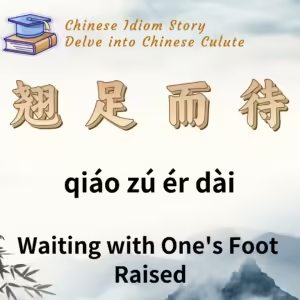
Chinese Idiom: 惴惴不安 (Zhui Zhui Bu An)
English Translation: Anxiously Uneasy
pīn yīn: zhuì zhuì bù ān
Idiom Meaning: It describes a state of worry, fear, and inner unrest.
Historical Source: The Book of Songs (Shijing), specifically the poem “Huang Niao” (黄鸟).
Idiom Story:
In 621 BC, Duke Mu of Qin, one of the prominent leaders during the Spring and Autumn period, passed away. His death caused widespread mourning among the people of Qin, who organized a grand funeral. According to the burial customs of the time, a total of 177 individuals were sacrificed to accompany the duke in death. Among these was a nobleman named Zi Che, who had three sons: Yan Xi, Zhong Xing, and Yue Hu (also known as San Liang).
On the day of the sacrificial burial, a noble attending the funeral noticed the fearful expressions of the Zi Che brothers as they faced their fate. Deeply sympathetic, he composed a mournful elegy titled “Huang Niao,” capturing the brothers’ terror and revealing the cruelty of the sacrificial burial system.
The opening lines of the elegy state:
“The mournful yellow birds chirp and rest on the thorny trees. Who follows Duke Mu? It is the son of Zi Che, Yan Xi. This Yan Xi, his worth is equal to a hundred men. As he approaches the grave, he trembles with fear. O heavens above, you destroy the good men! If only I could redeem him, I would willingly die a hundred deaths.”
In essence, the poem laments the fate of Yan Xi, the son of the noble Zi Che, who possesses exceptional talents yet finds himself trembling as he approaches his grave. It conveys a deep sense of injustice, expressing a wish to exchange one’s own life to spare the deserving Yan Xi from death.
The phrase “临其穴,惴惴其栗,” which translates to “approaching the grave, trembling with fear,” was later simplified and extended to form the idiom “惴惴不安.” This expression is now used to describe feelings of worry, fear, and anxiety.






